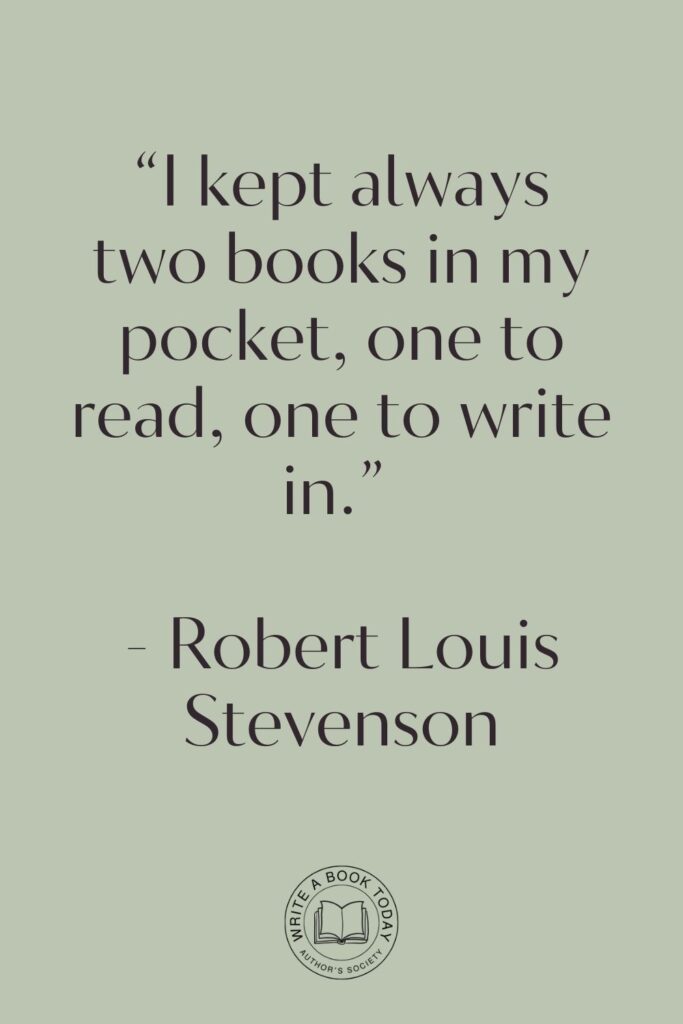Have you ever wondered what it takes to become a successful author?
Is there a secret formula that turns dreams into reality?
Writing is not just about putting words on paper; it’s about unlocking the creative genius within you.
As you embark on this literary journey, you’ll find that the path to authorship is filled with challenges, triumphs, and endless possibilities.
So, how do you begin?
How do you craft stories that captivate readers and leave them yearning for more?
The answer lies in embracing your unique voice, honing your craft, and navigating the intricate world of publishing with confidence and resilience. Let’s dive into these tips for aspiring authors that could be your game-changer.
1. The Journey Begins: Embrace Your Inner Writer
The road to becoming an author is akin to setting sail on uncharted waters. It requires courage, curiosity, and a willingness to explore the depths of your imagination.
The first step is to embrace your identity as a writer, even if you’re just starting out. Remember, every renowned author was once an aspiring writer, filled with dreams and doubts.
1.1 Finding Your Unique Voice
Your voice is the fingerprint of your writing. It’s what sets you apart from others and makes your stories uniquely yours. To find your voice, immerse yourself in diverse experiences and let them shape your perspective.
Write authentically, drawing from your own life and observations. Don’t be afraid to experiment with different styles and tones until you discover the one that resonates with you.
To find your unique voice, try freewriting daily. Let your thoughts flow without self-censorship. Over time, patterns will emerge, revealing your natural style.
1.2 Understanding Your Audience
Writing is a conversation between you and your readers. To engage them effectively, you must understand who they are and what they seek in a story.
Research your target audience, learn their preferences, and tailor your narratives to resonate with their interests.
This doesn’t mean compromising your artistic vision; rather, it’s about finding common ground where your creativity meets their expectations.

2. Crafting Compelling Narratives
At the heart of every great book lies a compelling narrative. Crafting such stories requires a delicate balance of structure, character development, and emotional depth.
A well-told story captivates readers, drawing them into a world where they can lose themselves.
2.1 The Art of Story Structure
A strong story structure is the backbone of any successful narrative. It guides the reader through a journey, complete with a beginning, middle, and end.
Begin with a hook that captures attention, build tension through rising action, and culminate in a satisfying climax and resolution.
Each scene should serve a purpose, propelling the story forward and revealing new facets of your characters.
Outline your story before writing. Identify key plot points and ensure each scene contributes to character development or plot advancement.
Google Docs is for notes. Scrivener is for novels. Upgrade your writing game and try it for free today!

2.2 Building Relatable Characters
Characters are the soul of your story. They are the vessels through which readers experience the narrative. To create relatable characters, give them depth, flaws, and motivations.
Allow them to evolve throughout the story, facing challenges that force them to grow. Readers should see parts of themselves in your characters, making their journeys more impactful.
- Create detailed character profiles, including background, personality traits, and goals.
- Ensure characters have distinct voices and perspectives.
- Show character development through actions and decisions, not just dialogue.

3. The Power of Consistency
Consistency is a writer’s best friend. It transforms writing from a hobby into a discipline, ensuring steady progress toward your goals.
Establishing a routine and setting achievable targets can make the daunting task of writing a novel feel manageable.
3.1 Establishing a Writing Routine
A writing routine creates a structured environment conducive to creativity. Choose a time and place where you feel most inspired, and commit to writing regularly.
Whether it’s early mornings or late nights, consistency helps build momentum and keeps writer’s block at bay.
| Time of Day | Writing Environment | Benefits |
| Morning | Quiet home office | Fresh mind, fewer distractions |
| Afternoon | Café | Ambient noise can stimulate creativity |
| Evening | Library | Calm atmosphere, focused energy |
3.2 Setting Achievable Goals
Goal setting is crucial for maintaining motivation and tracking progress. Break down your writing project into smaller, manageable tasks.
Set daily or weekly word count targets and celebrate small victories along the way.
This approach not only keeps you motivated but also provides a sense of accomplishment as you move closer to completing your manuscript.
Use a planner or digital tool to track your writing progress. Visualizing your achievements can boost motivation and provide clarity on your next steps.

4. Embracing Feedback and Growth
Writing is a continuous journey of growth and improvement. Embracing feedback and honing your editing skills are essential components of this process.
Constructive criticism can open your eyes to new perspectives and help refine your craft.
4.1 Seeking Constructive Criticism
Feedback is invaluable for growth, but it can also be daunting. Seek feedback from trusted sources – fellow writers, writing groups, or professional editors.
Approach criticism with an open mind, focusing on areas for improvement rather than taking it personally.
Constructive feedback can illuminate blind spots and elevate your writing to new heights.
No marketing platform? No social following? No problem!
Publisher Rocket helps you market your debut novel like a pro.
It’s a gamechanger for debut authors – try it today!


4.2 The Importance of Editing
Editing is where the magic happens. It’s the process of refining your manuscript, ensuring clarity, coherence, and polish.
Begin with a broad overview, addressing structural issues and plot holes. Then, focus on line edits, enhancing language and style. Finally, proofread for grammar and punctuation errors.
A well-edited manuscript is a testament to your dedication and professionalism.

5. Engaging with the Writing Community
The writing community is a treasure trove of support, inspiration, and opportunities. Engaging with fellow writers can provide motivation, valuable insights, and a sense of belonging.
Networking and participating in events can open doors to new collaborations and learning experiences.
5.1 Networking with Other Writers
Networking is about building relationships with other writers, sharing experiences, and exchanging ideas.
Attend writing groups, join online forums, and participate in social media discussions.
These connections can lead to fruitful collaborations, mentorship opportunities, and a deeper understanding of the writing landscape.
5.2 Participating in Workshops and Conferences
Workshops and conferences offer a wealth of knowledge and networking opportunities.
They provide a platform to learn from industry experts, gain feedback on your work, and connect with like-minded individuals.
Embrace these events as a chance to grow, both personally and professionally.

6. Marketing Yourself and Your Work
In today’s digital age, marketing is an integral part of an author’s success. Building an author platform and leveraging social media can help you reach a wider audience and establish your brand.
Effective marketing strategies can elevate your visibility and drive book sales.
6.1 Building Your Author Platform
An author platform is your online presence – a website, blog, or social media profiles – where readers can learn about you and your work.
Share your writing journey, engage with your audience, and showcase your expertise. A strong platform builds credibility and fosters a loyal readership.
6.2 Utilizing Social Media Effectively
Social media is a powerful tool for connecting with readers and promoting your work. Choose platforms that align with your target audience and engage consistently.
Share valuable content, interact with followers, and participate in relevant conversations. Authenticity and consistency are key to building a genuine online presence.

7. The Road to Publication
Publication is the culmination of your hard work and dedication.
Understanding the publishing landscape and preparing your manuscript for submission are crucial steps in this journey.
Whether you choose traditional or self-publishing, each path offers unique opportunities and challenges.
7.1 Understanding Publishing Options
Explore the various publishing options available – traditional publishing, self-publishing, or hybrid models.
Each has its pros and cons, so research thoroughly and choose the path that aligns with your goals.
Consider factors such as creative control, financial investment, and distribution reach.
Attend webinars or read books about publishing to gain insights into the industry.
Understanding the process can help you make informed decisions about your publishing journey.
7.2 Preparing Your Manuscript for Submission
Before submitting your manuscript, ensure it’s polished and adheres to industry standards.
Follow submission guidelines meticulously, as agents and publishers often receive numerous submissions.
A well-prepared manuscript demonstrates professionalism and respect for the publishing process.

8. The Mindset of a Successful Author
Success in writing is as much about mindset as it is about skill. Cultivating patience, resilience, and a positive attitude can help you navigate the ups and downs of the writing journey.
Embrace challenges as opportunities for growth and celebrate every milestone, no matter how small.
8.1 Cultivating Patience and Resilience
Writing is a long and sometimes arduous journey. Cultivate patience, understanding that success may not come overnight.
Resilience is equally important – embrace setbacks as learning experiences and persevere through challenges.
Your dedication and persistence will ultimately lead to success.
8.2 Celebrating Small Wins
Celebrate every achievement, no matter how minor it may seem. Whether it’s finishing a chapter, receiving positive feedback, or reaching a writing milestone, acknowledge your progress.
Celebrating small wins boosts morale and keeps you motivated to continue writing.

9. Creative Writing Techniques to Inspire
Creative writing is a dynamic and evolving art form. Experimenting with different techniques can invigorate your writing and spark new ideas.
Techniques such as freewriting, brainstorming, and using prompts can unlock creativity and help overcome writer’s block.
9.1 Freewriting and Brainstorming
Freewriting involves writing without constraints, allowing ideas to flow naturally. It’s a powerful tool for overcoming blocks and generating new material.
Similarly, brainstorming encourages divergent thinking, helping you explore multiple angles and possibilities for your story.
Feeling lost with your debut novel?
Fiverr Pro connects you with expert editors, designers, and marketers – everything you need to get your book ready for success!

9.2 Using Prompts to Spark Ideas
Writing prompts are a great way to ignite creativity and inspire new stories. They challenge you to think outside the box and explore unfamiliar themes.
Incorporate prompts into your writing routine to keep your creativity sharp and your ideas fresh.

10. Keep Writing: Your Story Awaits
The most important tip for aspiring authors is to keep writing. Your story is waiting to be told, and only you can bring it to life.
Writing is a lifelong journey, filled with exploration, discovery, and growth.
Embrace it with passion and persistence, knowing that each word brings you closer to achieving your dreams.
10.1 The Importance of Perseverance
Perseverance is the cornerstone of success. Even when faced with rejection or self-doubt, continue to write.
Every writer experiences setbacks, but those who persist are the ones who succeed. Keep pushing forward, and your efforts will be rewarded.
10.2 Writing as a Lifelong Journey
Writing is not just a destination but a lifelong journey. Embrace the process, relish the learning, and enjoy the creative freedom it offers.
As you grow as a writer, you’ll discover new stories, forge new connections, and leave a lasting impact on the world through your words.
In conclusion, the journey of becoming an author is as unique as the stories you wish to tell.
By embracing these tips for aspiring authors, you can unlock your creative potential and embark on a fulfilling literary adventure.
Remember, every great author started where you are now – with a dream, a pen, and a blank page waiting to be filled. Keep writing, for your story awaits.








